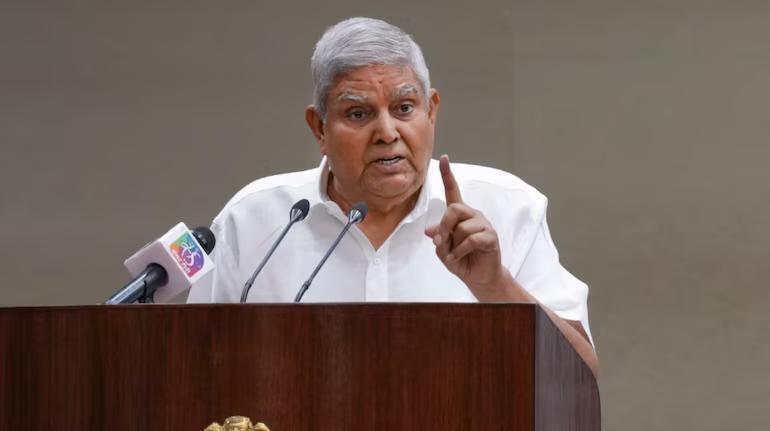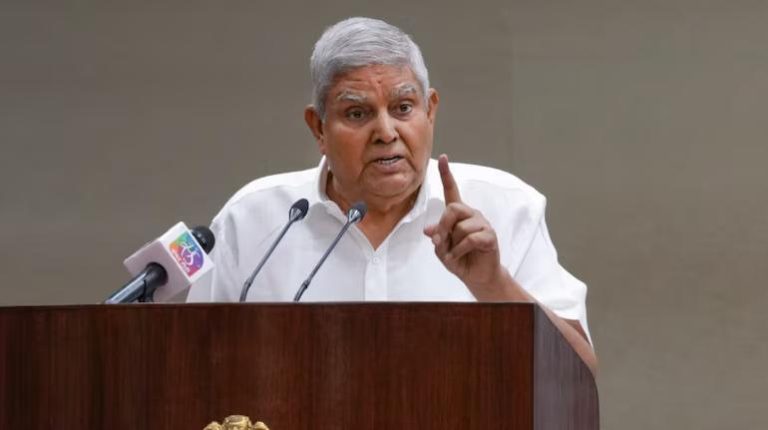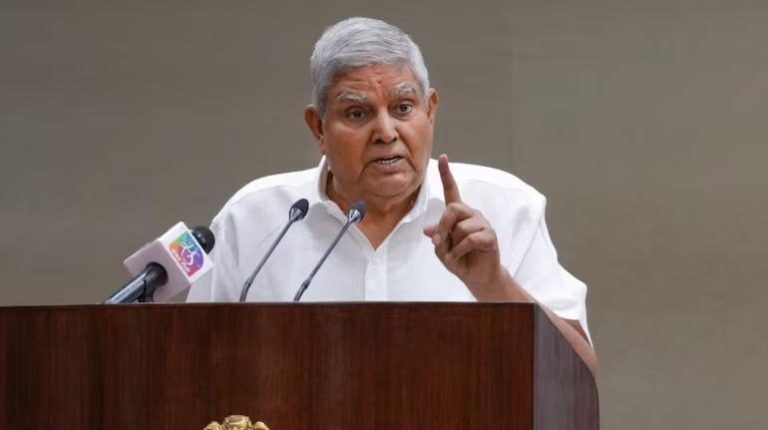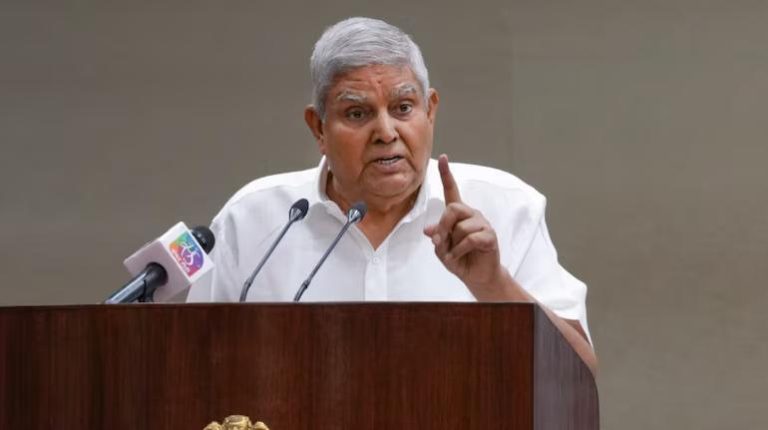
Terrorism is Global Menace: Vice President Dhankhar on J&K Attack
In the wake of the recent terror attack in Pahalgam, Jammu and Kashmir, which has claimed the lives of at least 26 innocent people, Vice President Jagdeep Dhankhar has condemned the attack and termed terrorism as a global menace. The attack, which is believed to be the handiwork of terrorist groups, has sent shockwaves across the country, and the Vice President’s statement is a reflection of the nation’s collective outrage and grief.
“I join the nation in expressing profound grief and outrage at the heinous attack in Pahalgam that claimed innocent lives. It is a reminder that terrorism is a global menace,” said Vice President Dhankhar.
The attack, which took place on Friday, is the latest in a series of violent incidents that have plagued Jammu and Kashmir in recent times. The region has been gripped by unrest and violence for years, and the recent attack is a stark reminder of the ongoing threat posed by terrorist groups.
Terrorism, by its very nature, is a global problem that affects people from all walks of life, regardless of their nationality, religion, or ethnicity. It is a scourge that has claimed millions of lives and displaced countless more. The attack in Pahalgam is a grim reminder of the devastating impact that terrorism can have on innocent civilians.
The Vice President’s statement is significant not only because of its timely condemnation of the attack but also because it highlights the need for a collective effort to combat terrorism. Terrorism is a complex problem that requires a multifaceted approach, involving governments, civil society, and individuals from all over the world.
In recent years, terrorism has evolved into a more sophisticated and global phenomenon, with terrorist groups using advanced technology and social media to spread their ideology and recruit new members. The attack in Pahalgam is a stark reminder that terrorism is a constantly evolving threat that requires a sustained and coordinated response from governments and civil society.
The Indian government has been at the forefront of efforts to combat terrorism, both domestically and internationally. The country has been a victim of terrorism for decades, with attacks ranging from the 1993 Mumbai bombings to the 2008 Mumbai attacks. The government has taken a number of measures to strengthen its counter-terrorism capabilities, including the establishment of the National Investigative Agency (NIA) and the creation of a dedicated counter-terrorism fund.
India has also been a vocal advocate for global action against terrorism, and has played a key role in international efforts to combat the threat. The country has been a key player in the United Nations’ Counter-Terrorism Committee, and has worked closely with other nations to share intelligence and best practices in counter-terrorism.
Despite these efforts, terrorism remains a significant threat to India’s national security, and the attack in Pahalgam is a stark reminder of the ongoing challenge that the country faces. The Vice President’s statement is a timely reminder of the need for continued vigilance and cooperation to combat this global menace.
In conclusion, the attack in Pahalgam is a tragic reminder of the devastating impact that terrorism can have on innocent civilians. The Vice President’s statement is a timely and powerful condemnation of the attack, and highlights the need for a collective effort to combat this global menace. As the world grapples with the challenge of terrorism, it is crucial that governments and civil society work together to prevent such attacks from happening in the future.
Source:





